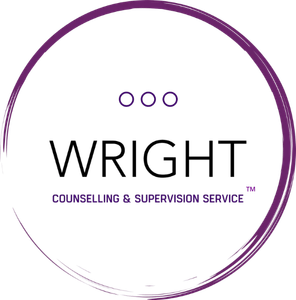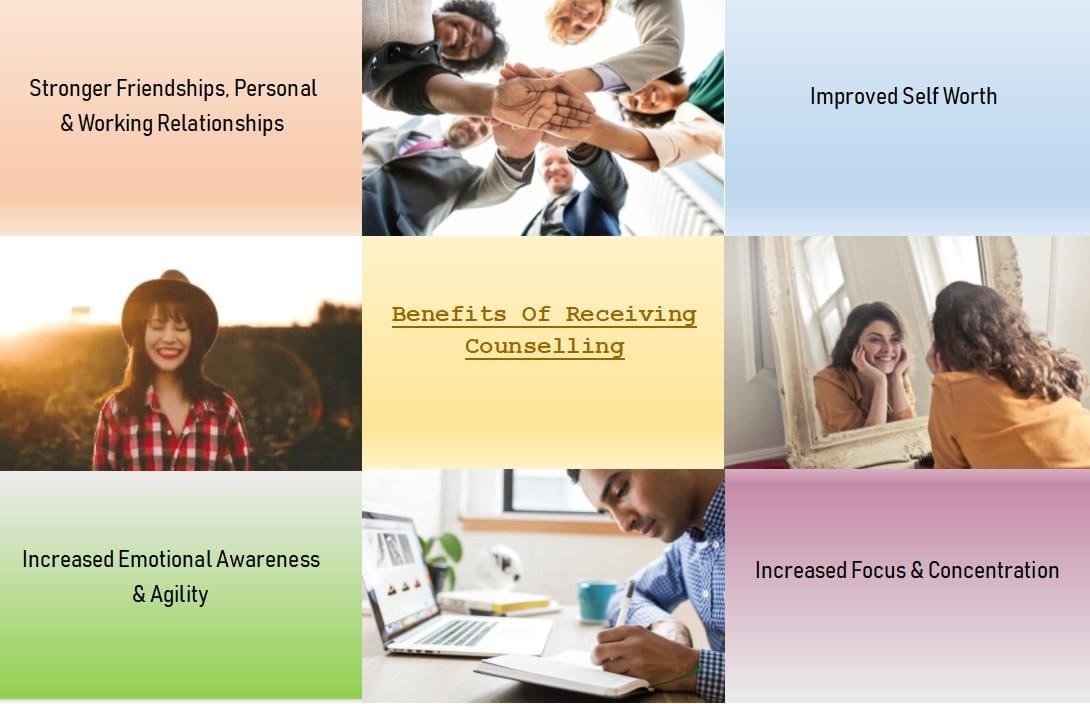

Counselling
Welcome To The Counselling World
Listen to this page on any device. Anywhere. At any time.
An Introduction To Counselling

Lets Get Started
Let’s dive straight into what might be useful to know. Some readers may have had prior counselling experience, and others, maybe newcomers starting out on their journey.
It would be great to hear from you with any questions you may have. The contact form is located towards the bottom of the page. An audio recording of this page is available — click the "Soundload" button at the top of the page to download the secure file onto any device.
The counselling profession offers a diverse range of styles and approaches, not to mention the unique personal style and healing philosophy that each counsellor brings to their work. Because of this it is difficult to pinpoint one universal definition. But we can at attempt to, by taking inspiration from what all approaches seem to have in common. I propose we start by generally defining what counselling is, and then explore one specific approach.
What is Counselling?
A General Definition of Counselling
So firstly, a here’s a general definition of counselling, based on some of my general experiences. My role is to meet with individuals, usually once a week, in a confidential setting, to actively listen, and to deeply connect with the thoughts, feelings, and experiences that are openly shared with me within the counselling space. My aim is to offer my complete, undivided attention and to contribute to helping individuals overcome barriers and blocks in their lives hindering growth and development.
I think that this is close enough to a fair and accurate assessment of what the counselling role is at its core regardless of the approach. Moving forward, let’s look at one specific approach of counselling. I have chosen my own approach as I am able to provide a deeper level of understanding based on working knowledge and experience.About The Person Centred Counselling Approach
I’m known as a “Person-Centred” therapeutic counsellor. Person-Centred counselling is a humanistic approach that focuses on the study of relationships and the significance that these have in our lives. The word “relationship”
is a broad term I use within this text to describe the various kinds of relational contact that we might have with others. For example: family, partners, and friendships. The term can even be used to define the relationship we have towards ourselves.
Person-centred counselling is designed to be flexible and adaptive to meet the needs of each individual having sessions. From the first contact, respect, authenticity and non-judgement are all freely given. Period. There is a commitment to continuously nurturing what are known as psychological conditions within the working relationship between the client and the counsellor. such as the ones mentioned above. In doing so, individuals are to discover their own path to becoming self-sufficient and autonomous. I believe that on some level that the therapist is the therapy. I believe that this statement could mean that the qualities of the counsellor and their contributions to the relationship are of the main sources of healing for the client.
I have not yet found that sacred magic wand or the ultimate guide to "fixing" the parts of us that are broken. However, Person-Centred counselling can at least offer the chance to establish a strong, healthy connection in a safe environment where a well-established dynamic between the client and the counsellor is to - hopefully, fingers crossed - positively impact other areas of a someone's existence outside of the therapy environment.
Whilst on the topic of human contact, it's worth mentioning the work of journalist, Johann Hari, author to the book, "Lost Connections". Hari stresses the importance of connection and the healing potential that it potentially possesses. Hari even hypothesised that depression is curable through connection. In counselling, relief is known to be found through connection.Personal Motivations of A Counsellor
Counsellors are motivated for very personal reasons. My AboutMe section mentions my own experiences, but just briefly, my own motivations relate back to a pastime where I experienced a lack of professional competency by professionals to which I was in their care. Sadly, I wasn’t met with the genuineness, care and the quality of attention that I would have hoped to have received. All of what I didn't experience became the main focus in my practice. A sort of, showing them how it is done.
For other counsellors and psychotherapists, motivations may differ but are not any less important. Even within just one approach alone, many types of personal styles may emerge. Although similar, they are different but are most likely all based on some form of personal history of their own.So To Summerise
A counsellor will be with you on your journey to facilitate, not dictate. The Person-Centred approach is what I call real healing. Not robotic, not scripted. It's about connection and it is about being real.
kill switch align
When The Right Time Might Be
Building a Picture
It might be useful now to explore when the best time would be to access counselling. Timing is important to get as much benefit from it as possible. In addition to this, being able to notice the signs and symptoms of a possible decline in your mental health, possibly your physical health too, can help in identifying the timing and the type of
support needed.Self -Awareness
From the initial thought of needing support to the first step, counselling can be gradual process. Reaching out shouldn’t be rushed; it takes as long as it takes. Having awareness of the challenges in our lives is extremely important.
According to the Cambridge Dictionary, awareness is defined as:
“knowledge that something exists or understanding of a situation or subject at the present time
on information or experience”We may have moments of awareness throughout the day. Sometimes thoughts that we acknowledge and let go of,
allowing them to run their course. Other times, we can hold onto thoughts. When we start to hold onto too many of our thoughts for longer and longer periods, instead of allowing them to pass freely through us, the body starts storing and negatively impacting us.The body can respond to challenges emotionally, mentally and even physically. Here are just some of the ways that our bodies can do this:
- Restlessness or agitation
- sudden triggers of aggression, rage attacks, blackouts, or "seeing red"
- Excessive use of painkillers
- Dependence on substance
- Persistent anxiety and/or panic attacks
- Prolonged periods of sadness or low mood
- Being overwhelmed with thoughts and emotion
- Hearing voices that seem louder or more intrusive than usual
- Difficulty concentrating or maintaining focus
- Being sure of saying or seeing something, only to later realise they weren't real
- Suicidal thoughts
- Thoughts or the act of self- harm or engaging in self- harming behaviours
- Struggling to engage in intimacy or connection in relationships
- Consistent feelings of guilt and/or shame
- Struggling to get out of bed
- Difficulty waking up or falling asleep
- Feeling disconnected from yourself or experiencing out-of-body sensations
- Feeling afraid to leave home or go outside
Social Influence
Society is a place where our understanding of the concept of counselling may begin. Even before stepping into a therapy room, our understanding of the process can be influenced through social media, tv, and first-hand accounts by the people we know. Counselling holds a variety of meanings and significance for us all. The only way to truly build a more in-depth understanding is to start the journey first-hand. When the time is right, the body signal this to us. Begin by listening to your inner voice and allow it to guide when the time is right. The body will tell us what we really need to hear if we just sit with ourselves and allow it through.
kill switch align
Some Areas Counselling Works With
🧠 Mental Health Conditions
Some conditions that counselling can help with include:
- Anxiety Disorder
- Depression
- Agoraphobia
- ADHD/ADD/AHD
- Borderline Personality Disorder
- Eating disorders
- Post Traumatic Stress Disorder
- Seasonal Affective Disorder (SAD)
⚖️ Trauma & Abuse
These relate to experiences of violence, violation, or psychological trauma:
- Domestic Abuse & Violence
- Bullying & Harassment
- Trauma Related Experiences
💬 Relational & Social Issues
These involve interpersonal dynamics or social challenges:
- Relationship issues
- Sexual relationships / encounters
- Loneliness
- Identity
- Pregnancy
- Internet & Technology Related Issues
🧒 Young People & Education
These are specific to developmental stages or school-related concerns:
- Bullying
- School attendance
- Exam Stress
🍃 Addiction & Behavioural Challenges
These involve compulsive behaviours or substance use:
- Drugs & Alcohol
- Gambling
- Rage
- Workaholism
- Addiction to Sex
Some of The Benefits

Understanding The Myths & Realities
Counselling comes in all shapes and sizes. It’s one of the most diverse professions in the world, which is incredible — because people have a choice in how they want their counselling to look and feel. However, there are some assumptions about counselling that seem to have come from many sources.
📚Common Counselling Myths
Clients mostly lay back on a sofa to have therapy
Counsellors Say ".. and how does that make you feel?" a lot
Counsellors possess notepads and write as you talk
Weak people need counselling
Confidentiality is one of the most important components of counselling. It allows someone to feel safe enough to speak freely, without having to worry or second-guess whether what they’ve said might get back to someone else—or be used against them at any point.
Confidentiality is a professional term that means, under only the most extreme circumstances, a practitioner may share something that has been spoken about. The practitioner has a duty to uphold this commitment for the sake of your trust and the relationship you have with them. This means that nobody outside of that relationship should be privy to what’s shared. That commitment requires more than just reassurances—it calls for a genuine, felt sense of trust.

Confidentiality & Trust
In counselling, trust is typically built over time. Counsellors generally spend a considerable amount of time exploring confidentiality at the beginning of the counselling process. This is to assure clients that whatever is shared remains protected. A professional who shares information about you around a dinner table and believes it’s acceptable simply because no names were used is not what confidentiality means or how it's supposed to work... From both a moral and legal standpoint, they have broken your confidence by sharing unnecessarily. Confidentiality means nobody.
When Confidentiality Might Need Extending
There are a few instances when confidentiality must be extended, and in most cases, this is due to legal obligations or to protect you or someone else if there is any form of immediate risk. Exceptions include:
- If you or someone else is at immediate risk of harm
- If anything disclosed falls within the scope of the Children Act
- If anything shared is considered a serious crime—this may include money laundering, terrorism, drug trafficking, or serious driving offences
Confidentiality & Counselling Supervision
In addition to these legal exceptions, counsellors may also speak about aspects of their work with a counselling supervisor. A Counselling supervisor is another professional that each counsellor must meet with regularly to explore how they are doing in relation to their work. to describe is best, it’s like counselling for the counsellors in relation to their work.
This process involves less about the client’s content directly and more about the counsellor’s emotional responses and reflections on the work. In these conversations, any information that might personally identify a client is excluded, and if necessary, pseudonyms are used to protect the client's identity.
Goal Setting
Goals are often seen as a vital component of the counselling. Having a specific goal—or even a general sense of direction—at the start of sessions can help shape therapeutic journey. Much of the personal growth that emerges in counselling happens both within and beyond the sessions themselves. Goals set within counselling can be included within this.

That said, you don’t need to arrive with a clearly defined goal to benefit from the time. Many people come to counselling to explore what matters most to them, while others may prefer to reflect on their experiences without setting specific objectives. Both approaches are entirely valid and can lead to meaningful insight and progress.
Whether you're working toward something specific or simply seeking space to think and feel more freely, sessions are there to support that process—at your pace. Theres no rush or pressure.New To Counselling?
Beginning therapy can be a unique experience for each individual, and it's important to recognise that people attending for the first time may feel apprehensive or anxious. Counsellors understand that taking the step to seek counselling can be challenging, so it is about making the process as warm, welcoming and comfortable as possible.

Once you've found a counsellor you feel comfortable working with, the next step is to reach out to them. Counsellors typically list their preferred contact methods in the contact section of their website.
A good starting point is to introduce yourself and share what has led you to seek counselling. This helps the counsellor understand your needs and determine how they can best support you.
Your initial message is also an excellent opportunity to ask any questions you may have about the counselling process. If both you and the counsellor agree to proceed with a first session, arrangements will be made for an initial meeting, often referred to as a "welcome meeting." The first official counselling session usually follows this welcome meeting.
After scheduling the welcome meeting, the counsellor will likely send additional information via email or message, including practical details such as their address if it's a face -to- face session, or a video link for online sessions
The First Session
The first counselling session typically follows a similar format to the welcome meeting and lasts up to an hour. During this time, you are more than welcome to talk about anything that you want. This is your opportunity to share your thoughts, feelings, and concerns in a supportive and non-judgmental environment.
Here are some topics that might be covered during your first counselling session:
- Introduction to the counselling space
- Exploring confidentiality
- Discussing what has brought you to seek counselling
- Identifying your goals
- Understanding your expectations
- Addressing any special arrangements or adjustments
kill switch align
FAQs
How Do I Know If I Need Counselling?
How Do I Start Counselling Sessions?
How Many Sessions Will I Need?
Can I Have More Than One Session Per Week?
Are Sessions Confidential?
Do My Parents Have To Know That I'm Having Counselling
Why Is a Session 50 Minutes?
Can Counsellors Write Notes Like Doctors Do?
How Impactful is One Counselling Session Per Week?
Can I Have 2 Forms of Counselling at The Same Time?
Are Counsellors and Therapists The Same Thing?
Does My Doctor Need To Be Informed About Me Having Counselling Sessions?
What is Online Counselling?
Can I Have More Than An Hour ?
Do Counsellors Need To Be Qualified and How Qualified Are They?
Can I Refer Someone To Counselling If I Am Worried About Them?
Can I Have A Break From Counselling?
Articles | Updates | Discounts | Monthly & Seasonal Gifts
Services
Counselling
Online Counselling
Supervision
Consultancy Services
Wrightings™
Subscribe +
Site Glossary
Benjamin J Wright
Clinical Therapeutic Counselllor | Clinical Supervisor | Consultant
Dip.co.MNCPS (Acc.), BSc PG dip
Clinical Therapeutic Counselling Since 2013
Accredited Registrant with the National Counselling & Psychotherapy Society (NCPS)
NCPS Registration No. NCS22-00211
Wright Counselling & Supervision Service ™
Copyright© 2017-2026




















